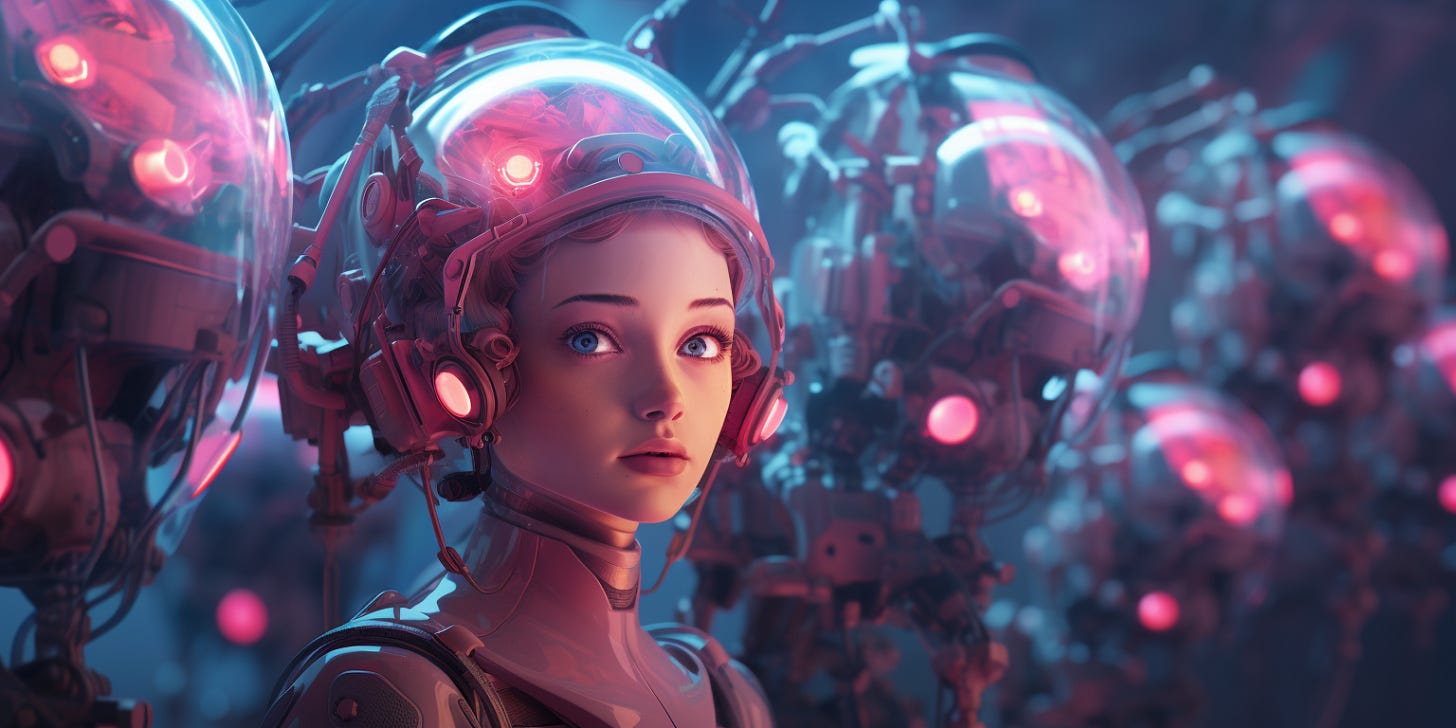AI is bound to set to a great start in 2024.
Here are some of the key developments in artificial intelligence from the past week.
Dictionaries Recognizing AI's Impact: AI's influence in 2023 is highlighted by its presence in "word of the year" lists from Oxford, Cambridge, and Merriam-Webster dictionaries.
Funding for AI Speech Models: AssemblyAI raised $50M to build and serve AI speech models, reflecting the growing investment in generative AI technologies.
AI-Enhanced Star Trek Series: Fans have used AI to upscale the Star Trek series "Deep Space 9" for modern TV viewing, showcasing the entertainment applications of AI.
Delay in OpenAI's GPT Store: OpenAI announced a delay in the launch of its GPT Store until early 2024 due to internal leadership changes.
Continued Relevance of Traditional AI: Despite the rise of Large Language Models (LLMs), traditional AI methods remain viable and important.
Amazon's AI Catch-Up: Amazon is seen as lagging in AI compared to other tech giants, a rare position for the company.
Capsule's AI News App: A Paris-based startup, Capsule, launched a new app combining AI and human editors to curate news, aiming to transform how users consume daily news.
Smartphone Sales and AI: Projections by Goldman Sachs and Morgan Stanley suggest that smartphone sales will rebound in 2024, partly driven by AI advancements.
Wombo's New AI Avatar App: Wombo, creators of the AI art app Dream by Wombo, released a new AI-powered avatar app called Wombo Me.
ChatGPT's Success: On its first anniversary, ChatGPT's mobile apps surpassed 110M installs and nearly $30M in revenue.
Amazon CTO on Culturally Aware LLMs: Amazon CTO Werner Vogels discussed the importance of culturally aware LLMs at the AWS re:Invent conference.
AI Symposium at MIT: Rodney Brooks, co-founder of iRobot, initiated an MIT symposium on the promise and potential pitfalls of powerful AI tools like ChatGPT.
Crowdsourced Feedback for Training Robots: A new method, Human Guided Exploration (HuGE), uses human feedback to train AI agents, even if humans make mistakes.
New CRISPR Systems Discovered by AI: AI analysis of bacterial data revealed nearly 200 new types of CRISPR systems, expanding possibilities in gene editing and diagnostics.
MIT Students' Generative AI Ideas: Students at MIT presented innovative startup ideas in generative AI at the MIT Ignite competition.
Synthetic Imagery in AI Training: MIT researchers developed a method using synthetic imagery for more efficient and bias-reduced AI training.
AI Learning on Edge Devices: A new technique, the PockEngine training method, enables machine-learning models to learn continuously from user data on devices like smartphones.
Israeli Defense Force's AI-Powered System: The IDF showcased its AI system, “The Gospels,” for targeting management in the ongoing Gaza-Israel conflict.
Advancements in AI Image Generators: AI image generation technology is making strides toward real-time, high-fidelity image creation.
AI in Animate Memes: The internet is seeing a surge in the use of AI to animate memes, indicating the growing influence of AI in digital art.
Pika's AI Video Generator: Pika Labs launched Pika 1.0, an AI video generation tool aimed at democratizing video production.
Amazon's New AI Assistant for Businesses: Amazon introduced Amazon Q, a generative AI-powered assistant designed for business applications.
Ridley Scott's AI Concerns: Director Ridley Scott voiced concerns about AI, comparing its rapid development to a "Technical Hydrogen Bomb".
Adobe Acquires Rephrase.ai: Adobe Systems expanded its generative AI capabilities by acquiring the text-to-video AI startup Rephrase.ai.
Stability AI's Controversy: Stability AI faced controversy over its use of copyrighted material for training its generative AI product, leading to the resignation of its head of audio.




